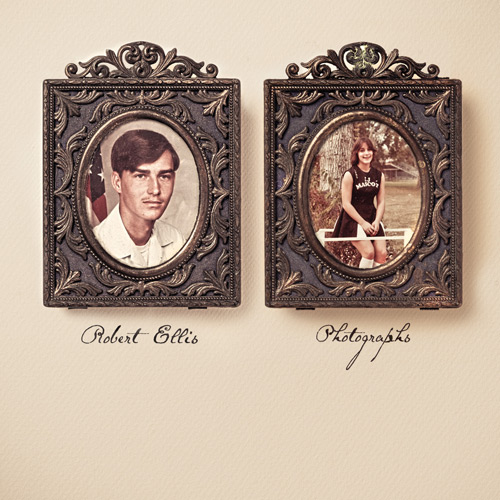Videos by American Songwriter
Robert Ellis
Photographs
(New West)
[Rating: 3 stars]
At his best, Robert Ellis doesn’t write songs so much as he pens reveries. Sounding older than his years, the twenty-two-year-old Houston native obsesses over old lovers, old habits, old mistakes, and especially old friends on his full-length debut, Photographs. Even that album title implies a kind of reminiscence over family pictures found in a dusty box in the attic, creased and discolored with time yet powerfully evocative of obscure memories you didn’t even remember you’d forgotten.
That removed-from-time quality gives much of Photographs a unique power. On the gently sung “Bamboo,” Ellis describes a Texas pastoral: a dock by the lake, a field where he took target practice, a garage where he made things out of scraps of wood. Then he tears up that photograph, admitting that he traded his guns for a car and that it’s easier to buy than to build what he needs. Country music thrives on this kind of nostalgia for the unrecoverable past, but through his sharp eye for the specifics of a life, Ellis turns it into something even more bittersweet. He not only gets the details right on “Bamboo” and “Two Cans Of Paint” and “Cemetery,” but he builds on them intuitively until they accrue significance even to listeners who have never fired a gun, painted a room, or made love on a tombstone.
With such insight into the enormous motivations behind even the smallest acts, Ellis recalls the emotionally sober tunes of his Lone Star forebears: Townes Van Zandt obviously, but also Vince Bell, Willie Nelson, and Kris Kristofferson. His plainspoken lyricism is matched by a penchant for elegantly rustic melodies, which in the dusty country genre makes for a sound that would come alive on vinyl. While there’s no LP version planned, Ellis has organized Photographs as if it were an LP you dug out of a flea market crate, with two distinct sides. The first features Ellis and his guitar prominently, singing low-key, lived-in songs accompanied only by quiet flourishes of fiddle and pedal steel. This is Ellis in his element, and his quiet songs deliver devastating observations about love and loss.
About halfway through “Westbound Train,” ostensibly the last song on side one, Ellis’ backing band arrives suddenly to transform the austere arrangement into a rollicking road song. That trick, as invigorating as it is unexpected, transitions seamlessly into side two, which features fuller arrangements that nod to specific country tropes. The division is intended to highlight Ellis’ range from acoustic troubadour to hardened country road warrior, yet despite his band’s skill and audacity, Photographs falls off as soon as the tempos pick up.
Ellis trades the distinctiveness of side one for country-and-western archetypes so broad that the songs, no matter how lively they sound, come across as largely anonymous – vacant of all the flesh-and-blood characters who haunt side one. “Comin’ Home” and “What’s In It For Me?” may be deftly and even humorously written, and they probably gain a lot of power in a live setting, as the band click together. In this context, however, they seem merely like genre exercises, meant to evoke Gram Parsons and George Jones rather than Ellis himself. These songs aren’t bad, just of a lesser caliber than the ones that preceded them.
In particular, “No Fun” sounds woefully out of place on Photographs, as Ellis sings from the perspective of a wildly jealous lover: “Honey, if you ever decide to cheat, I’ll poke out your eyes and stomp on your little feet.” Surely – hopefully – he means that ironically, but that line stands out as more psychotic than pathetic; Ellis just can’t situate the song as firmly in the realm of satire as it needs to be. As a result, “No Fun” sucks the air out of the closing title track, ending the album on a few bum notes. Despite such flaws, however, Photographs proves a persuasive introduction to a young artist whose craft is still catching up with his talent.










Leave a Reply
Only members can comment. Become a member. Already a member? Log in.